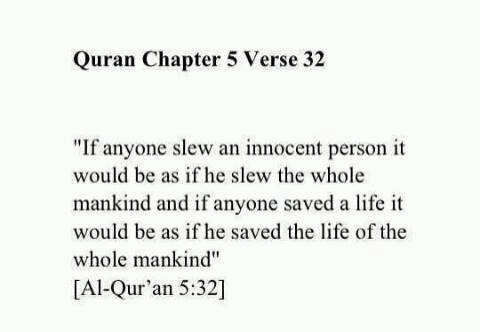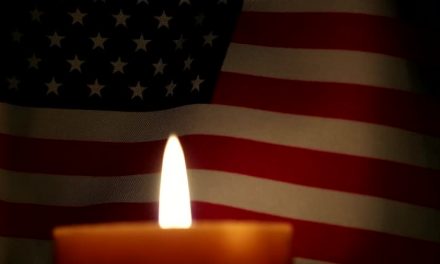Barack Obama gave an interview to 60 Minutes this past Sunday to talk about the attack on Osama bin Laden. It made absolutely compelling television, and the president was particularly sterling. The most intriguing question, I thought, came at the end, when Steve Kroft asked the President, “Is this the first time that you’ve ever ordered someone killed?”
Obama’s response pointed to the power and gravity of the presidential office: “Well, keep in mind that, you know, every time I make a decision about launching a missile, every time I make a decision about sending troops into battle, you know, I understand that this will result in people being killed. And that is a sobering fact. But it is one that comes with the job.”
Kroft did not let the question go: “This was one man. This is somebody who’s cast a shadow in this place, in the White House for almost a decade.”
Obama then said something that I found rather shocking: “As nervous as I was about this whole process, the one thing I didn’t lose sleep over was the possibility of taking bin Laden out. Justice was done. And I think that anyone who would question that the perpetrator of mass murder on American soil didn’t deserve what he got needs to have their head examined.”
Perhaps I need to have my head examined, but does it not seem a little disturbing that our President feels it is within his competency to judge an individual worthy of death? And that this individual happens to be someone whose actual death he played a central role in bringing about?
Was bin Laden a mass murderer? Yes, absolutely. If he had been taken alive, would he have eventually been executed? There can be little doubt of that. Could one make the case that the operative(s) who killed him were acting out of self-defense? Sure, it seems very plausible. Yet despite all that, should Catholics rest easy with the president’s post facto pronouncement, made with unconditional confidence, that bin Laden deserved to die?
When a jury convicts a criminal of a capital offense in our country and that criminal is sentenced to death, a moral judgment has been made that this particular person deserves to die. The community is saying that it is just that this person be put to death on account of the gravity of their crime.
That sounds straightforward enough, except for the fact that Catholic social doctrine seems to reject this view of capital punishment. It leaves room for the execution of criminals under the paradigm of legitimate national defense, but does it leave room to say that the dangerous aggressor from whom the community cannot be kept safe deserves to die? Certainly, a criminal deserves punishment according to CSD, but under the particular circumstances which (according to CSD) allow for the legitimate exercise of the death “penalty,” can one still say that the criminal deserves to die? Is the criminal’s death in this instance the reflection of a moral judgment upon their crime, or is it simply the prudential determination of the requirements of national defense?
Beyond what Obama’s statement implies about the care taken to apprehend bin Laden alive, the claim that a president can (even in retrospect) pronounce that an individual deserves death should at least raise some probing questions about whether and under what conditions killing can be an authentic expression of justice. Catholic social doctrine maintains that killing can be a legitimate means of defense, but beyond that does not seem to offer much room for the public to judge the killing of any person as an act that in itself accomplishes justice.
Can deliberate killing be an instrument of justice? While the question remains an open one in Catholic moral theology, it seems to be a settled matter for our president.




Patrick,
Thanks for a challenging post raising important questions.
In these discussions and media coverage, I have been reminded of Reinhold Niebuhr’s insistence that all political conflicts are between sinners and not between righteous men and sinners.
Something I think we need to remember in this whole reflection on Bin Laden’s death.
Thanks again, Patrick. The link with current Catholic teaching on capital “punishment” is what I had in mind in my comment on your earlier reflection on bin Laden. I know that state executions are no longer treated under the rubric of “punishment” in the Catechism, but is “justice” reduced to “punishment” in your view? If not, then perhaps intentional killing can be an act of justice but not an act of punishment. One other thought for right now: perhaps intentional killing should not be called an act of justice, but as Paul Ramsey used to say, it should be called a justified act–as in justified war rather than just war.
Glad you raised this Patrick. It is not a popular thing to question our killing of bin Laden this last week or two. And indeed it may indeed have been the right call to kill bin Laden. I am quite open to that possibility. But it does invite reflection on why so – or why not. If our tradition of reflection on the just use of force is more than an academic exercise, it should offer us guidance here. Or we should see how it may need development, which I suspect is the case here.
It seems to me that language of punishment and retribution are inadequate here. (I do not think Obama should have said “We got our man,” or “Justice has been served.”) If that is what we were doing, we should have tried to apprehend him. If he was killed while resisting that would be just. But the point of teh operation would be to apprehend and prosecute. That does not seem to me to be what happened here. Nor do I think it should have.
It is the just war tradition that gives us guidance on use of lethal force to restore justice. I think the only way to describe the killing of bin Laden as just is to describe it as an act against a combatant. Granted, he is a combatant in a non-traditional sense, as terrorism and the activities of non-governmental entities such as al Quaeda have forced us to consider. But as a person in a political organization declaring and committing acts of war on the political entity the United States, it seems bin Laden falls under the rubric of combatant.
I recognize this raises all sorts of difficult (ad bellum) questions. Even if just cause and legitimate authority seem more obvious, intent here is tougher. Though talk of a war that is “endless” in principle is incompatble with the just war tradition, it is difficult to see what the intent in such a war would be: elimination of al Quaeda? rendering it impotent?
I hope we can accruately identify both what framework in which this action is most properly discussed, and then whether or not it was just according to that framework.
The questions Bill raises about the proper framework are really interesting ones – ones that I’m sure other contributors know a lot more about that I do!! It seems to me the difficulty here is whether the action against bin Laden was more like an act in a war or more like a police action. We always have to work out of analogies in these tricky cases, and at least to my novice eyes, it appears more like a police action… albeit one that the country in which he was residing did not carry out. One can imagine a country’s police force apprehending a terrorist much as they might apprehend international drug traffickers. The problem arises when the impact of the proposed criminal act is international. Here it seems to me is where CST, certainly since Gaudium et Spes, has insisted the only way forward is some sort of legitimate “international” authority, which would possess the ability to authorize the use of force. CST holds that this is the necessary direction for overcoming the scourge of war, but it appears even more pressing in the light of “murky” things like terrorism.
Again, I’m embarrassingly novice on just war stuff these days, since I usually only teach a day or two on it in my (primarily economic-focused) CST class. But I think the issue of legitimate authority is important here… and perhaps important for justifying Americamn action in light of Pakistani inaction?
I thought this strand may pick up a bit more! But let me chime back in to say that David is exactly right – the issue is whether or not the US action falls under police action or war. However, I would argue the latter.
In either case this action demands that the standard paradigms of policing or just war be broadened. David mentions that slot it under policing we would need to revisit the authority issue, and may even require some international police body. In the same way that the coordinated activities of the mob in 1970’s-80’s led to racketeering laws to help police them, this case could lead to revised visions of policing.
Or it could lead to revisions in just war thinking. Thus far I am persuaded (in conversation with my colleague Joe Capizzi) that Al Quaeda, unlike the mob, is a more political (albeit non-governmental) agent with political motives targeting specifc staes (such as ours). In this scenario the difficult criterion is not legitimate authrity, but right intention.